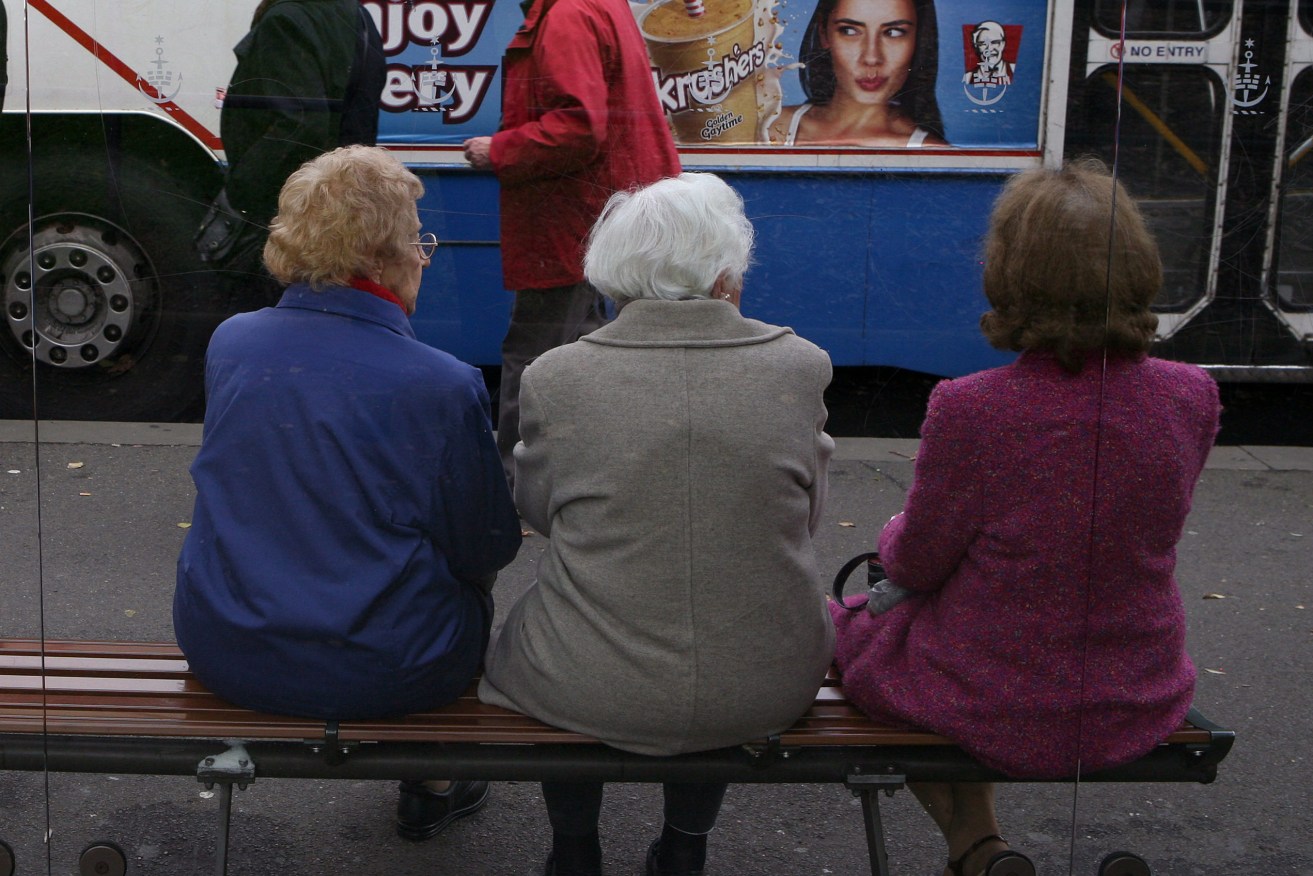Elder abuse complaints on rise during lockdown
Aged care advocates have raised concerns about a rise in elder abuse referrals amid the coronavirus pandemic.


Image: AAP/Angela Brkic
John-Paul Kristensen, a social worker with the Uniting Communities elder abuse unit, told InDaily the agency had received an increase in elder abuse cases, particularly “complex referrals,” in Adelaide in the past four weeks.
He said the unit was currently working on 90 cases of elder abuse, the majority of which were referred from the South Australian Police and Adelaide hospitals.
“In that last month we’ve had referrals where there was physical abuse, psychological abuse and financial abuse. So there were multiple abuses, which seems to be a bit of a shift from before,” Kristensen said.
He said it would be “a number of months” before data was released about the rate of abuse across South Australia. But he believed older South Australians forced to isolate and depend on their abuser for essential services had heightened the intensity of abuse.
“I can honestly say the complexity of the calls has increased … there is a greater intensity in the atmosphere and probably more likelihood of abuse happening,” Kristensen said.
“There is also an atmosphere at the moment, with the recent abuse … of Ann-Marie Smith, where I think all agencies are wanting to be incredibly strict with how they manage their process and policy.
“So it could be that we get more referrals than we normally would because the agencies wouldn’t normally refer but they’re erring on the side of caution.”
The Uniting Communities Elder Abuse department was started last year in response to the Federal Attorney-General’s National Plan to Respond to the Abuse of Older Australians.
According to the Attorney-General’s Office’s website, the Plan is intended to strengthen “the evidence base on the nature and prevalence of elder abuse in Australia” as “there is no established level of prevalence of elder abuse in Australia”.
It estimates roughly 15 per cent of the Australian population is above 65-years-old, with that number predicted to rise to 23 per cent by 2055.
Abuse is considered elder abuse if it affects a person over the age of 65, or 50 if they are Aboriginal or Torres State Islander.
There has previously been little data about the abuse of older Australians, including how to strengthen service responses, enhance community understanding and increase safeguarding measures.
Kristensen said the unit had received a “disproportionate number” of referrals relating to people with English as a second language.
He said the majority of abuse was being perpetrated by a son living with his mother.
“A son will be 40 or 50 years old and maybe have a relationship breakdown or some sort of interaction with the justice system or something goes wrong in their life and they feel they have to move back in with their parents – usually a mother,” Kristensen said.
“So they move back in with mum and initially it may start okay. But they don’t pay money, they don’t pay bills, they have an alcohol problem or an addiction issue, there may be a mental health diagnosis, there may be a number of causal factors that they start getting emotionally abusive.
“They start taking over the house and behaving like it’s their house, rather than their parents’. They don’t pay rent or they don’t pay enough.”
Aged Rights Advocacy Service chief executive Caroline Barkla said the advocacy body had also received “significant calls in terms of aged care restrictions on top of our usual elder abuse calls.”
“We continue to receive calls in regard to elder abuse issues by family and friends,” Barkla said.
She said while the advocacy group’s primary role was in elder abuse prevention and community education “so they don’t end up in the emergency room” as older South Australians were forced to say home it could create more “extreme” abuse.
“That’s where you get the referral from SAPol … so of course in the pandemic, there’s less ability for people to seek out others during this time or go to safe places,” Barkla said.
“My concern is what is going to occur in the future when older people can come back into society. Because they are still told at this moment to stay at home, and we’re not saying not to do that.
“But the issue is we don’t know what is happening but we do know when people, particularly sons and daughters, are put under pressure because of their financial situation, that that can potentially have a negative impact on older people.
“I don’t want to be negative Nelly and I know that … there has been support from other older people coming out to support older people, but we know that there are many older people at home and we know they could be vulnerable.
“I know there has been a lot of ringing around and checking on people, but it’s not the same. Yes it’s better than nothing, but it’s not the same.”
Want to comment?
Send us an email, making it clear which story you’re commenting on and including your full name (required for publication) and phone number (only for verification purposes). Please put “Reader views” in the subject.
We’ll publish the best comments in a regular “Reader Views” post. Your comments can be brief, or we can accept up to 350 words, or thereabouts.




